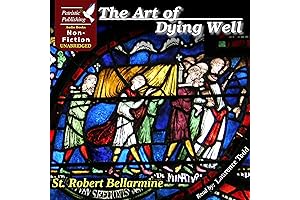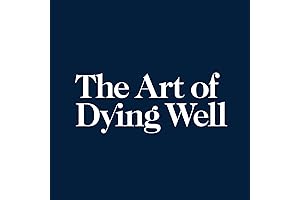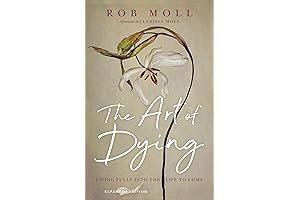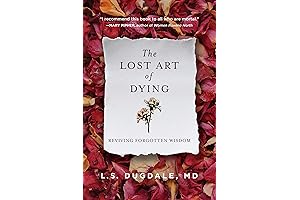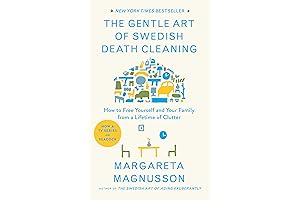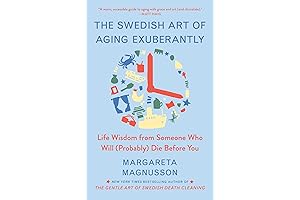· end of life · 13 min read
Mastering the Art of Dying Well: A Comprehensive Guide to a Meaningful End of Life Journey
Embark on a journey towards a peaceful and purposeful end-of-life experience with our ultimate guide. Discover practical insights and strategies to navigate the challenges and embrace the beauty of transitioning from life to death.
Welcome to the profound exploration of the 'Art of Dying Well.' This guide delves into the complexities and opportunities of preparing for a meaningful end-of-life journey. By understanding the practical aspects, emotional challenges, and spiritual dimensions involved, we can empower ourselves and our loved ones to make the most of this inevitable transition.
Overview
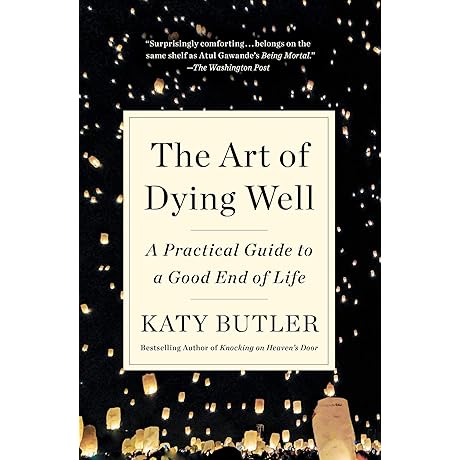
PROS
- Provides practical guidance on navigating end-of-life decisions
- Offers insights into spiritual, emotional, and legal aspects of dying
- Helps individuals prepare for a peaceful and dignified departure
CONS
- Can be emotionally challenging for some readers
- Focuses primarily on Western perspectives on death and dying
Immerse yourself in 'The Art of Dying Well,' a practical guide that illuminates the path to a meaningful end of life. This comprehensive resource empowers individuals to navigate the complexities of dying, encompassing spiritual, emotional, and legal considerations. Its profound insights and practical advice guide readers towards a peaceful and dignified departure.
The book explores the art of dying well from diverse perspectives, delving into the importance of self-reflection, advance care planning, and compassionate care. It addresses the emotional challenges that arise during this transformative journey, providing invaluable support and guidance. 'The Art of Dying Well' empowers individuals to confront their mortality with clarity and courage, ensuring a peaceful transition for both themselves and their loved ones.

PROS
- Offers comprehensive guidance from the perspectives of medical professionals, spiritual leaders, and personal experiences.
- Features exercises and reflections to help you confront your fears and embrace the dying process.
CONS
- May not resonate with all readers due to its frank discussions of mortality.
- Some sections may require multiple readings to fully grasp the concepts presented.
The Art of Dying Well is an invaluable resource for anyone seeking to navigate the complexities of end-of-life care. By blending expert insights and personal narratives, this book empowers readers to make informed decisions about their final days.
Through a series of thought-provoking exercises, the book encourages readers to reflect on their values, fears, and aspirations related to death. The result is a deeply personal and meaningful exploration that can help individuals approach their mortality with greater clarity and peace. Whether you're facing a terminal illness or simply want to prepare for the inevitable, this book offers invaluable guidance on how to live and die with dignity and purpose.
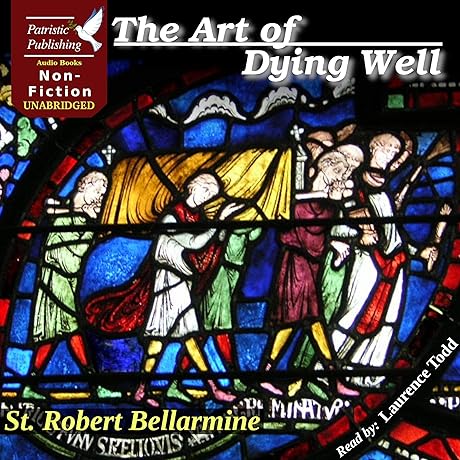
PROS
- Offers practical wisdom and guidance for navigating the challenges of dying with grace and dignity
- Provides insight into the emotional and spiritual aspects of the dying process, fostering a deeper understanding of death.
CONS
- May not resonate with all readers, as it primarily reflects a Western perspective on death.
- Some readers may find the discussions of mortality and the inevitable nature of death to be emotionally confronting.
Embark on a poignant journey towards the 'art of dying well' with this insightful guide. Compassionately exploring the intricacies of the dying process, this book provides a profound framework for understanding and embracing death as a natural part of life. Through a blend of personal anecdotes, expert perspectives, and ancient wisdom, readers are guided through a transformative exploration of the emotional, spiritual, and practical aspects of dying.
Delving into the heart of the matter, this book illuminates the challenges and opportunities that arise as we confront our mortality. It empowers readers with practical strategies for navigating the uncharted territories of dying, fostering a sense of peace and acceptance. By shedding light on the dying process, this guide encourages mindful living, empowering individuals to make the most of their remaining days and to pass with grace and dignity.

PROS
- Compassionate and empathetic approach to end-of-life care
- Comprehensive guidance on physical, emotional, and spiritual aspects of dying
CONS
- Can be emotionally challenging for some readers
- May not be applicable to all cultural or religious perspectives
In 'The Art of Dying Well,' renowned palliative care advocate Katy Butler unveils a profound and practical guide to navigating the end-of-life journey with grace and dignity. This insightful work offers a nuanced understanding of the physical, emotional, and spiritual dimensions of dying, providing invaluable support for both individuals and their loved ones.
Butler's compassionate approach is evident throughout the book, as she weaves together personal anecdotes, clinical expertise, and wisdom from various traditions to create a truly holistic perspective on end-of-life care. The book's comprehensive coverage empowers readers to make informed decisions about their own care, while also equipping them with the knowledge and skills to provide compassionate support to others. Through its sensitive and thought-provoking exploration of death and dying, 'The Art of Dying Well' serves as an illuminating guide for anyone seeking a peaceful and meaningful end-of-life experience.

PROS
- Delves into the profound significance of death and its potential for personal growth.
- Provides practical guidance and insights for navigating the end-of-life journey with grace and acceptance.
CONS
- Can be challenging for individuals struggling with the fear of death.
- Some may find the theological perspectives presented less relevant to their own beliefs.
"The Art of Dying: Living Fully into the Life to Come" is an insightful and thought-provoking exploration of death and its profound impact on our lives. Dr. Sogyal Rinpoche, a renowned Tibetan Buddhist teacher, offers a unique perspective on the end-of-life journey, inviting us to confront our fears and embrace death as a natural and integral part of the human experience.
Through personal anecdotes, practical exercises, and ancient wisdom, Rinpoche guides readers on a path towards a peaceful and meaningful demise. He emphasizes the importance of cultivating compassion, forgiveness, and spiritual awareness in preparation for death. While the book is primarily rooted in Buddhist teachings, its message resonates universally, offering valuable insights for individuals from all walks of life seeking to live fully and die well.
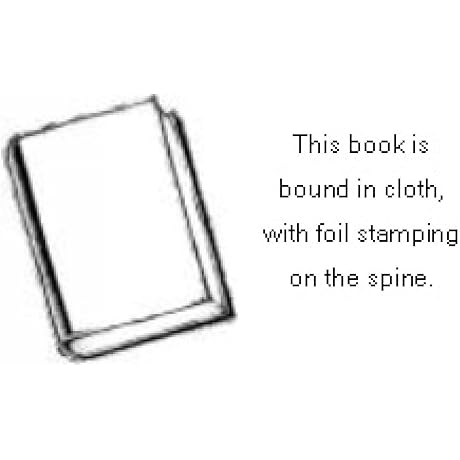
PROS
- Provides practical guidance on end-of-life care, medical decisions, and spiritual matters.
- Offers a comforting and hopeful perspective on death and the afterlife.
CONS
- May not resonate with readers who hold different religious beliefs.
- Some readers may find the theological discussions too detailed.
This book offers a compassionate and thought-provoking exploration of the 'art of dying well' from a Christian perspective. Drawing on the wisdom of Scripture, tradition, and personal experiences, the author guides readers through the practical and spiritual aspects of end-of-life care, helping them to navigate the challenges and uncertainties with patience, hope, and peace.
The book explores a wide range of topics, including medical decision-making, the role of caregivers, the importance of forgiveness, and the nature of heaven. The author draws on real-life stories, both personal and from those she has encountered in her ministry, to illustrate the challenges and rewards of caring for the dying. The book also provides insights into the Christian understanding of death and the afterlife, offering a comforting and hopeful perspective on the ultimate journey.
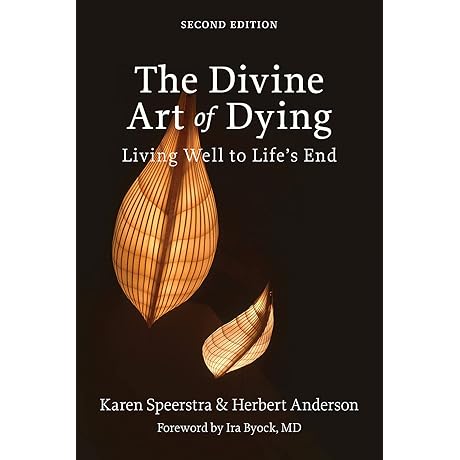
PROS
- Provides a comprehensive understanding of the dying process, demystifying common fears and anxieties
- Empowers individuals to create personalized end-of-life plans, ensuring their final wishes are respected
CONS
- Some readers may find the philosophical discussions too abstract
- Relies heavily on personal anecdotes, which may not resonate with all readers
A meticulously crafted guide to the art of dying well, this second edition of Kathleen Dowling Singh's "The Divine Art of Dying" offers profound insights into life's final chapter with a focus on living each moment with intention. The book deftly weaves personal reflections from the author's decades of experience as a hospice chaplain with practical advice and spiritual contemplations, painting a multifaceted portrait of the dying process.
The author's compassionate perspective transforms the often feared unknown of death into a profound opportunity for growth and reflection. Through the lens of the "Living/Dying Paradigm," readers are guided towards reclaiming their agency during this inevitable stage of life. The revised edition incorporates timely new insights on topics such as elder care, medical advancements, and the spiritual aspects of caregiving, reflecting the ever-evolving landscape of end-of-life care.

PROS
- Illuminates forgotten wisdom for navigating the end of life with serenity and acceptance
- Provides practical guidance on preparing for death, both emotionally and spiritually
- Empowers individuals to take control of their dying process and create meaningful experiences
CONS
- May be challenging for readers struggling to confront their own mortality
- Some sections may focus heavily on religious or spiritual perspectives
Step into the profound world of The Lost Art of Dying, a poignant exploration of the forgotten wisdom surrounding the end of life. This thought-provoking book invites us to embrace mortality, not with fear, but with dignity and fulfillment. Through intimate stories and practical guidance, it illuminates the forgotten art of dying well, empowering individuals to navigate this inevitable journey with grace and acceptance.
Guided by the wisdom of ancient traditions and modern insights, The Lost Art of Dying offers a roadmap for preparing for death, both emotionally and spiritually. It provides invaluable tools for coping with the inevitable, including cultivating inner peace, letting go of attachments, and connecting with our deepest values. By sharing the experiences of those who have crossed the threshold, this book unveils the hidden dimensions of dying, offering solace and inspiration to those facing their own mortality or supporting loved ones who are.
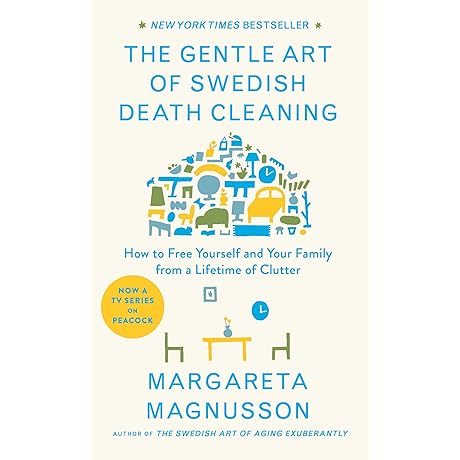
PROS
- Empowering guide to decluttering and end-of-life planning, promoting a sense of peace and control.
- Practical and compassionate approach inspired by Swedish traditions, offering a unique perspective on death and belongings.
CONS
- May require a significant amount of time and effort to implement the 'death cleaning' process thoroughly.
Delve into 'The Gentle Art of Swedish Death Cleaning' and uncover the profound practice of decluttering your life in preparation for the inevitable. This transformative book, guided by the Swedish concept of 'döstädning,' empowers you to create a legacy of love and organization for yourself and your loved ones.
With warmth and empathy, author Margareta Magnusson guides you through the process of sorting, organizing, and discarding your belongings, not as a morbid exercise, but as an act of self-care and preparation. By embracing the art of 'death cleaning,' you'll not only reduce clutter and simplify your life but also gain a sense of peace and control over your end-of-life decisions. This book is an essential companion for anyone seeking to live a meaningful and clutter-free life, leaving behind a legacy that truly reflects their values and intentions.

PROS
- Provides thought-provoking insights on the inevitability of death and the importance of embracing it.
- Offers practical guidance and exercises to help readers prepare for the end of life with courage and grace.
CONS
- Some readers may find the author's approach to death to be overly simplistic or dismissive of grief.
- The book primarily focuses on the Swedish perspective on death, which may not resonate with all readers.
In 'The Swedish Art of Dying Well,' palliative care physician and author Magnus Lindholm shares a refreshing and practical approach to the inevitability of death. Through witty anecdotes and compelling stories, Lindholm urges readers to confront their mortality with courage and humor. His writing guides readers through the challenging yet important task of preparing for the end of life, offering practical exercises and thought-provoking insights on how to live fully and die consciously.
Drawing heavily on Swedish culture and his own experiences as a doctor, Lindholm encourages readers to embrace the concept of the 'art of dying well.' He believes that by acknowledging and preparing for death, we can unlock a deeper appreciation for life and live with greater purpose. Lindholm's book is a valuable resource for anyone seeking to confront their own mortality, offering a unique and empowering perspective on the human experience.
In this comprehensive guide, you'll discover practical advice on navigating medical decisions, managing pain and symptoms, and creating a supportive and meaningful environment. We'll explore the role of spirituality, relationships, and legacy in shaping a fulfilling end-of-life experience. Ultimately, this guide serves as a compassionate companion, empowering you to embrace the 'Art of Dying Well' with grace, dignity, and a profound sense of purpose.
Frequently Asked Questions
What is the 'Art of Dying Well'?
The 'Art of Dying Well' refers to the practice of approaching the end of life with intentionality, dignity, and a focus on personal growth and fulfillment.
How can I prepare for a meaningful end-of-life journey?
Preparing for a meaningful end-of-life journey involves creating a supportive environment, addressing medical and legal matters, exploring spirituality and personal values, and engaging in meaningful activities that bring joy and purpose.
What role does spirituality play in the 'Art of Dying Well'?
Spirituality can provide comfort, meaning, and a sense of connection during the end-of-life journey. It can help individuals reflect on their values, explore the nature of death, and find peace in the face of mortality.
How can I support loved ones who are facing end-of-life challenges?
Supporting loved ones facing end-of-life challenges involves offering emotional support, practical assistance, and creating a loving and compassionate environment. It's crucial to respect their wishes, listen attentively, and provide a sense of comfort and security.
What are some practical tips for navigating medical decisions at the end of life?
Navigating medical decisions at the end of life requires open and honest communication with healthcare professionals. It's essential to understand treatment options, prognosis, and the potential impact of decisions on quality of life. Consider seeking guidance from trusted family members, friends, or a palliative care team.


